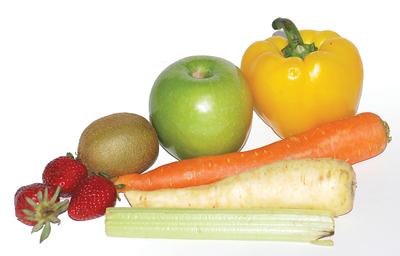Genetics
Your individual set of genes

We're interested in how your diet affects your inflammatory bowel disease, and are investigating how special nutritional treatments may be able to help.
We are investigating various new treatments and our team has been involved in creating new guidelines for the treatment of IBD.
We are looking into using 'exclusive enteral nutrition' at diagnosis, where patients with Crohn's disease are fed purely on a special liquid diet for eight weeks, with additional supplements given to those who are unwell and need to gain weight.
We've also investigated the effectiveness of the product 'Modulen IBD' for patients, assessing how it should be used and how much should be given. We've found that it is highly effective, reducing gut inflammation and improving energy levels, nutrition and growth. However, the patient and family need proper support, as it is challenging for the patient to use it alone.
We've found that poor nutrition is common in IBD and patients benefit from regular nutrition reviews, including a dietitian's advice.
Dr Tony Wiskin and Rachel Haggarty have researched whether you need more calories when you are ill or when you are well. There is an assumption that when you are unwell you need more calories, but we've learnt that when you are unwell and inactive your energy requirements are low, whereas when you are well your energy requirements increase and you need extra calories to catch up.
We are also investigating iron deficiency, a common and difficult to treat problem in IBD patients, and quality of life.
This research has been supported by the NIHR Southampton Biomedical Research Centre and Crohn’s In Childhood Research Association (CICRA). Our work is ongoing. Thank you for your support.